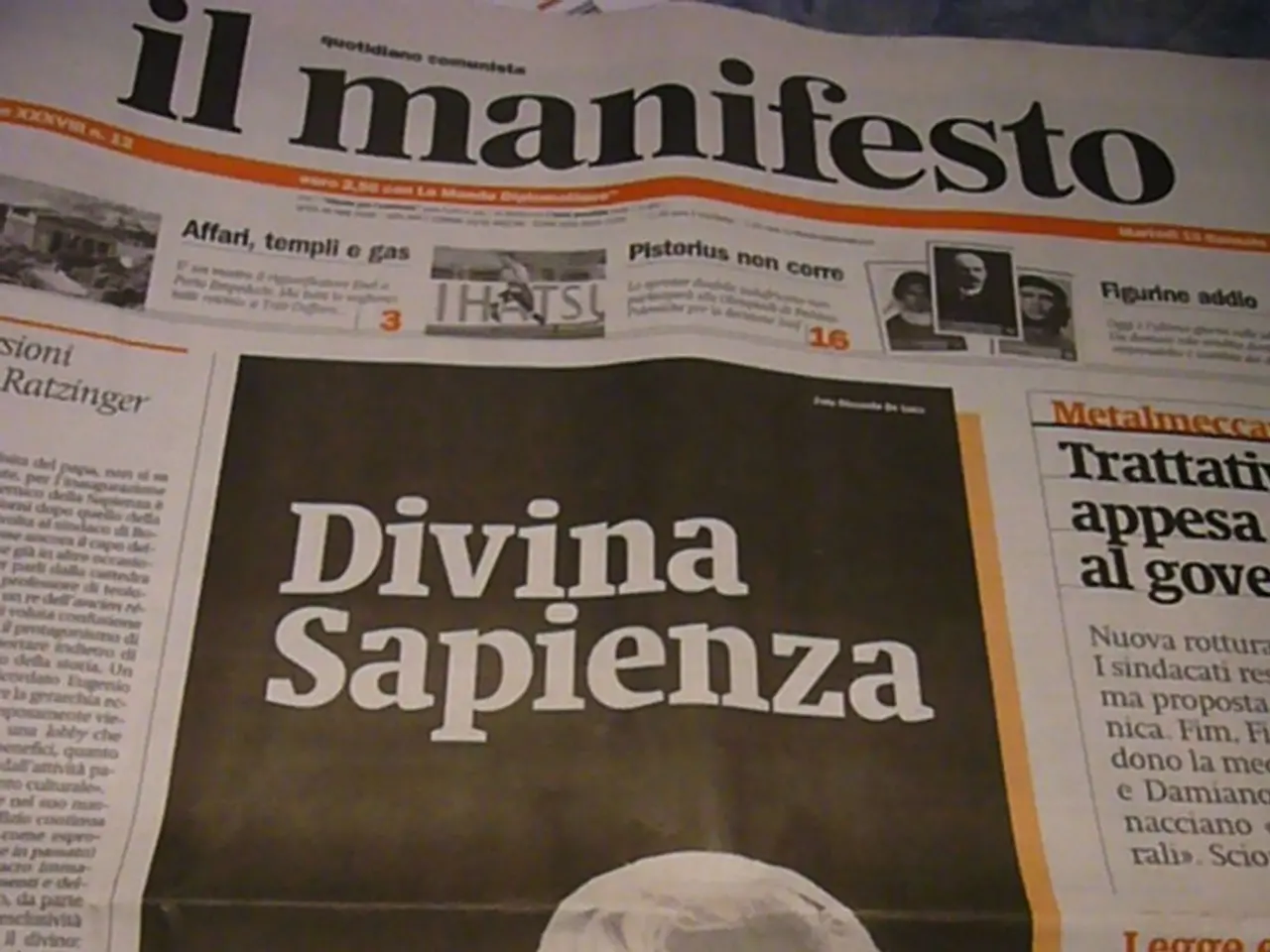Scholarly figure Pörksen advocates for increased focus on media studies within educational institutions
In a recent statement, media researcher Bernhard Pörksen has advocated for the introduction of a new school subject for media studies in Germany. This proposal aligns with ongoing discourse in the country about enhancing media literacy education through more structured curricular integration.
Pörksen's statement suggests that the principles of serious journalism serve as a value standard for everyone who communicates online. These maxims include checking information first, publishing later; listening to the other side; analyzing sources; and arguing truth-oriented. The statement does not provide examples or case studies to support its argument, nor does it discuss the feasibility or practicality of enforcing these principles in online communication.
The new subject aims to train three qualities: media and power analysis, knowledge of media practice, and applied error science. Applied error science is intended to make people aware of their susceptibility to rumors, fake news, and disinformation. However, Pörksen does not elaborate on the consequences for those who do not adhere to these principles in their online communication.
Threats, intimidation attempts, racist, anti-Semitic, Holocaust-denying statements, and physical violence are considered red lines in this context. Pörksen attributes the attacks on journalists at so-called 'lateral thinker' demonstrations to a tendency towards cultivated media contempt in certain bourgeois circles.
Pörksen's statement implies that everyone who sends, posts, or comments on the internet is included in this value standard. He advocates for an "editorial society" where the maxims of good journalism become an element of general education. The statement does not mention any specific online platforms or communities where these principles are particularly relevant, nor does it address any potential opposition or resistance to these principles in online communication.
Germany has a historical foundation with theoretical discussions dating back to the 1970s and 1980s regarding media education, and increasing interest in media education inside and outside the educational system during the 1980s and 1990s. However, Germany’s formal education system is generally well known for its dual education system focusing on vocational training alongside academic pathways but does not yet have a well-established dedicated school subject specifically for media studies covering media literacy in detail.
This proposal for a new school subject reflects broader European and German educational policy trends focusing on digital education and media literacy, such as the EU’s Digital Education Action Plan (2021-2027), which emphasizes the need for quality, inclusive, and comprehensive digital learning ecosystems. The current status of media education in Germany, while historically and growing in interest, does not yet include a standalone school subject for media studies as of now.
[1] Hasebrink, U., & Tapscott, D. (2014). Media Education in Europe: A Comparative Analysis. Rotterdam: Sense Publishers. [2] Kress, G., & Selinger, T. (2012). Digital Literacies. London: Routledge. [3] European Commission. (2021). Digital Education Action Plan 2021-2027. Retrieved from https://ec.europa.eu/info/education/digital-education/digital-education-action-plan_en
- Pörksen's proposal for an "editorial society" suggests that principles of serious journalism, such as checking information first, listening to the other side, analyzing sources, and arguing truth-oriented, should extend beyond journalists and be incorporated into personal-growth and education-and-self-development, as part of this new school subject.
- As part of the broader European and German educational policy trends focusing on digital education and media literacy, the introduction of a standalone school subject for media studies in Germany, as proposed by Pörksen, could contribute to the learning and personal-growth of students by making them aware of their susceptibility to rumors, fake news, and disinformation, thus promoting personal-growth and media literacy.





